The fragile ceasefire in Yemen between the Saudis and the Zaydi Shia Houthi rebels has lasted more than a month, despite a key clause concerning resumption of commercial flights being blocked. The United States behind the scenes has quietly abandoned seven years of broken diplomacy to play a more useful and balanced role. American distancing from Saudi Arabia has helped get the truce. The immediate priority should be to get commercial flights out of the capital Sana’a and then get an open-ended extension of the ceasefire before it expires in early June. The Yemen truce reflects a broader Saudi turn to detente with its regional rivals.
The United Nations Special Envoy Hans Grundberg, a Swedish diplomat, brokered the cease-fire in early April 2022. The Houthis and Saudis agreed to a two-month truce. The Saudis’ blockade of Houthi-controlled north Yemen would be lifted to allow fuel deliveries to help ameliorate the humanitarian catastrophe in Yemen. Commercial flights from Sana’a to Amman, Jordan and Cairo, Egypt would begin. This part of the deal was stymied when Riyadh refused to allow the first flight to Amman to leave Sana’a.
Riyadh also finally pushed Yemeni President Mansour Hadi out of the presidency, the man they had originally installed a decade ago to replace Ali Abdallah Salih after the Arab Spring. Hadi lived in exile in Riyadh after being run out of Sana’a by the Houthis at the start of the current war. On April 7, 2022 Hadi resigned the presidency and has since been under house arrest in the Saudi capital. A council of politicians has replaced him. For seven years Washington and Riyadh had demanded Hadi be restored to office.
Effectively, the Saudis and Americans have wisely abandoned the United Nations Security Council resolution passed at the start of the war that tilted entirely toward Hadi and the Saudis. The resolution was America’s diplomatic gift to the Saudi war effort. U.S. President Joe Biden has quietly moved away from the Obama administration’s policy. Obama reluctantly backed the Saudis because his priority was the Iran nuclear deal and he did not want Saudi opposition to it. Biden has instead moved to a more balanced approach, and for their part the Saudis are increasingly determined to end the expensive quagmire they fell into seven years ago.
The immediate priority should be to get the commercial flights going to allow Yemenis access to the world, especially those with health issues that need attention that is unavailable in Yemen’s weak medical infrastructure. The U.N. is trying to get a Yemeni passport office established in Sana’a that both parties will agree can certify and issue appropriate documents.
The next big step is to get the cease-fire extended indefinitely. Both sides accuse the other of violating the truce especially around the city of Marib, the last major city in the north outside Houthi control. Agreement on a long-term truce should help resolve local conflict by setting a strategic framework within which to solve tactical problems.
The peace process in Yemen has apparently benefited from the ongoing dialogue between Saudi Arabia and Iran that Iraq has been hosting. Over the last year Iraq has hosted five rounds of discussions between the Saudis and Iranians. The Iraqis are optimistic that the process is close to restoring diplomatic relations severed by the Saudis in 2016. Crown Prince Mohammed bin Salman has said publicly that the two are “neighbors forever.”
The detente with Iran is another fundamental shift in Saudi policy under King Salman. His term in office has been the most virulently anti-Iran in Saudi history, highlighted by the break in relations, and the war in Yemen. Saudi Arabia has been the loser in the rivalry. Iran’s partners and proxies in Yemen, Syria, and Lebanon have gotten stronger since 2016.
Oman is credited by Washington with helping coax the parties to agreement. Oman was the only Gulf monarchy not to join the coalition that started the war in 2016. It has decent relations with Iran.
In 2016 Pakistan also refused Saudi requests to send troops to fight the Houthis, creating a distance between the two traditional allies. Riyadh recently hosted the new Pakistani Prime Minister Shahbaz Sharif who was promised economic support which the Pakistanis desperately need. The kingdom hosts 2.7 million Pakistani guest workers, more than any other country.
The king also hosted Turkish President Recep Tayyip Erdoğan, another country at odds with the Saudis over Yemen and especially the murder of Jamal Khashoggi in 2018. The Saudis and Turks also promised to improve economic relations.
Collectively, the kingdom is trying to reduce regional tensions and restore alliances fractured by the reckless adventure in Yemen. We can only surmise the Saudis have concluded their old approaches were not working and becoming unsustainable. The Biden administration should focus on assisting this process as a top priority. A truce in Yemen will save thousands of lives, especially among the most vulnerable: children.

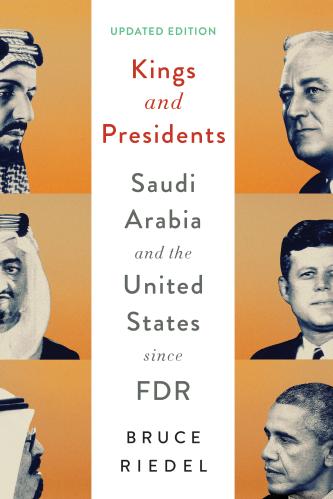

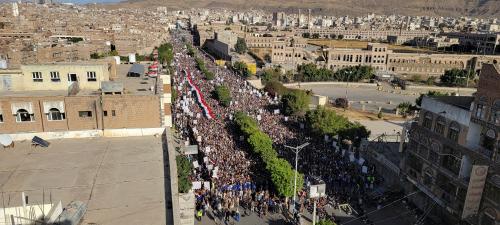
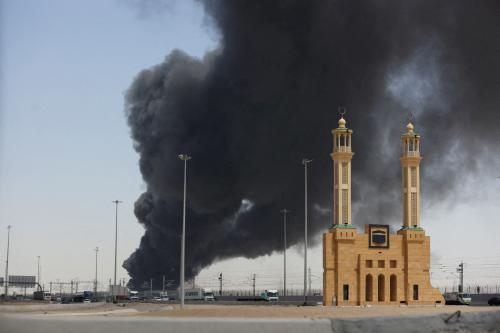


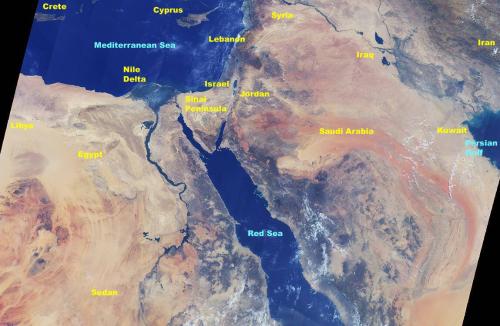
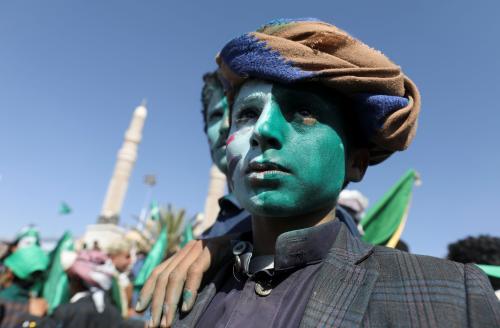
Commentary
How to bolster Yemen and Saudi Arabia’s brittle peace deal
May 10, 2022